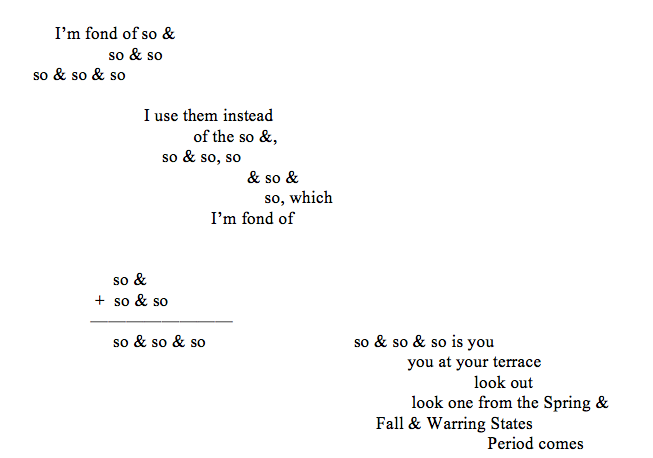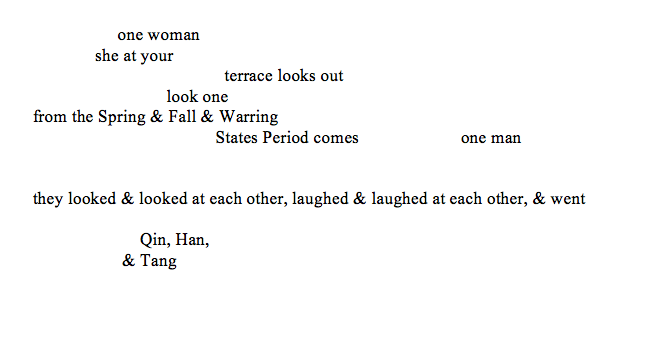Holly Painter – five poems
Holly Painter is a poet, writer, and editor from southeast Michigan. Her first book of poetry, Excerpts from a Natural History, was published by Titus Books in Auckland, New Zealand in 2015. Her poetry, fiction, and essays have also been published in literary journals and anthologies in the US, Canada, Australia, New Zealand, and Singapore. Holly teaches writing and literature at the University of Vermont.
The Strait
There is no street where I live
The leaves of the houseplants rattle
A town of scorched earth and fire escapes,
the city beside the strait
Only the inner layers pasted over remain
Today is not a shade of anything
a city grown weary of rebirth
of the scent of raspberries and wood
The place that made your cars
will open itself to you tonight
on land that cannot be new
as the hush or the day or
the air blowing between rotting boards
that gird the soggier organs
the scaffolding of a rust empire
with wild dogs for sentries
~
Eight
Mammatus clouds hover over telephone lines,
fingertips poised to pluck the strings of a guitar.
Neil hangs upside-down from the tire swing
jabbing at roly-polies until his stick snaps.
He dismounts with a neat somersault and
brushes the woodchips from his ecto green windbreaker.
Next year, his parents will split. He’ll move with his mom
to the neighborhood where all the wild boys live.
I climb the slide, boots slip-squeaking,
and thump up to a landing caked with wet-pulped leaves.
He’ll take pills in high school and get suspended for fighting
while I rack up scholarships and slice myself with broken lightbulbs.
I scout the woods where we’re not allowed to go.
It’s almost dark and there are no birds.
A flashing needle strings white light across the sky
and then fades as a crash rends the day,
a smoker clearing his throat
before spitting out a thunderstorm,
and we run.
~
Beside the Church
Rain between the digging
and the burying meant
summer afternoons of
muddy swimming holes
We leapt from earthmovers
shrieking as we plunged underground,
ballooned our breath in our cheeks,
and spit out dirty bubbles
We sliced a worm with a spade
and the dead fell out
but we were small gods:
we’d made another worm
We sprawled in new grass
thin tufts in the dirt
looked straight up the rain
to the black
and imagined
dirt coming down
~
Feed Me
Feed me only what is necessary
What is tender might be necessary
Feed me the train like a chain of clay beads
encircling the lady’s green wrist
its boxcars brown as a burlap sack
caked with the mud of potatoes
Feed me the red you suck off a candy cane
leaving a stabbing white icicle
Then feed me the icicle
the seasonal stalactite
that drips itself to life and death
Melt it for me with your breath
Feed me your grab bag face:
your punched in nose and your
beautiful eyes that can only be
the churning surf you kept
Feed my teenage demand
that you be everything:
breakfast, lunch, and dinner
morning, noon, and night
Feed me only what is necessary
and all you are is necessary
I’d feed you too, I would,
but I can never be just another
warm-blooded host
that’s not paying attention
~
Apologetics of a College Freshman
To the termites of the last empire:
Sorry, but we chew our own cities now
inflate them in the mornings
sour apple bubblegum
and swallow them at night
not the other way around
To the tobacconists of the old century:
Sorry, but we roll our own now
stash Mom and Dad in the Christmas cupboard
and take them out to wrap around boxes
crease their edges and trim the excess
while Mom’s still flatly nattering away
To the factory farmers of yesteryear:
Sorry, but we grow our own now
sprinkle the seeds of children in classroom
plumbing – they sprout from the walls
absorb their math and science and then
we pluck them and send them to college in vases
To the bankers of ages past:
Sorry, but we save our own now
drop kisses in jam jars with buttons
and cursing coins and wishes and
every extra Sunday we save till the
end of our days and then spend
To the gods of a time gone by:
Sorry, but we are our own now
fathers, mothers, devils, angels
prophets, priests, chosen people
and if we seem a touch surreal
well, let’s be honest, so were you
Continue reading


